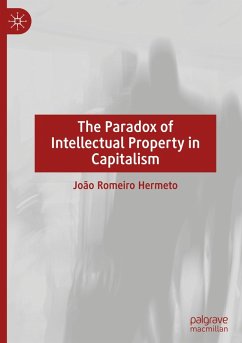The Paradox of Intellectual Property in Capitalism is an innovative book that comprehensively discusses and analyses intellectual property under capitalistic social conditions and relations. It not only addresses some historical developments of intellectual property but also brings to the fore the very notion of what knowledge is, knowledge creation, and knowledge production and appropriation within a Marxist framework. Nonetheless, the adopted approach pays heed to multiple fields of knowledge, providing rich discussions that facilitate the understanding of actual social totality in which capitalism, knowledge production and appropriation, and the struggles of appropriation mutually reinforce each other, although not devoid of antagonisms and contradictions.
In light of contemporary capitalism, the transformations that social property relations are undergoing must be scrutinised - such as those brought about by the development of digitalisation and the convergence between big pharma and tech giants. What are the conditions of intellectual property creation today? What theoretical assumptions does it make? Under what social relations is intellectual property produced?
Throughout, the emphasis is not on individual cases or symptoms but on the overarching logic: the logic of capitalism as revealed in intellectual property.
In light of contemporary capitalism, the transformations that social property relations are undergoing must be scrutinised - such as those brought about by the development of digitalisation and the convergence between big pharma and tech giants. What are the conditions of intellectual property creation today? What theoretical assumptions does it make? Under what social relations is intellectual property produced?
Throughout, the emphasis is not on individual cases or symptoms but on the overarching logic: the logic of capitalism as revealed in intellectual property.








